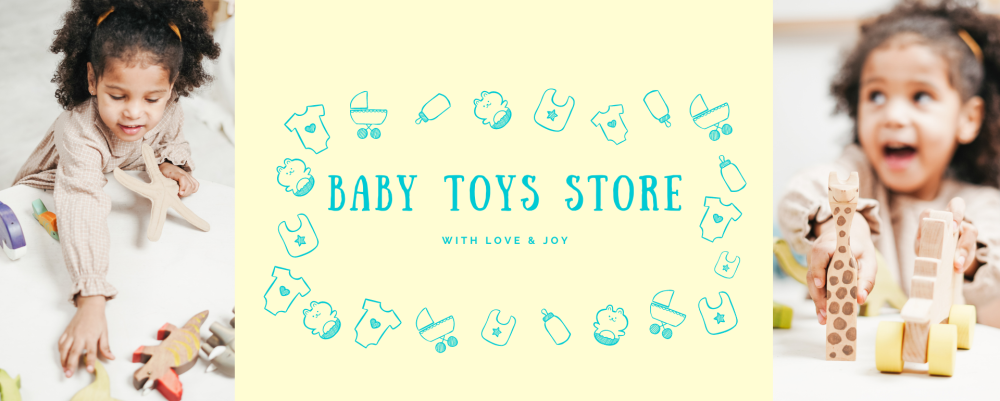Helping your newborn establish healthy sleep habits is crucial for their well-being and your own sanity as a parent. While newborns sleep a lot, they often have irregular sleep patterns. Here are some baby sleep solutions to help you establish healthy sleep habits from the start.
- Which Baby Foods Can Help Boost Immunity?
 Boosting your baby’s immunity is crucial for their health and well-being. Here are some baby foods that can help enhance their immune system: Breast Milk: If possible, breastfeeding is one of the best ways to support your baby’s immune system. It provides essential antibodies and nutrients. Fruits and Vegetables: Introduce […]
Boosting your baby’s immunity is crucial for their health and well-being. Here are some baby foods that can help enhance their immune system: Breast Milk: If possible, breastfeeding is one of the best ways to support your baby’s immune system. It provides essential antibodies and nutrients. Fruits and Vegetables: Introduce […] - What Baby Food Is High In Calcium?
 Many baby foods are designed to provide essential nutrients like calcium for healthy development. Here are some common baby foods that are high in calcium: Dairy Products: Dairy-based foods like yogurt and cheese are excellent sources of calcium for babies. Look for plain, unsweetened varieties with no added sugar. Fortified […]
Many baby foods are designed to provide essential nutrients like calcium for healthy development. Here are some common baby foods that are high in calcium: Dairy Products: Dairy-based foods like yogurt and cheese are excellent sources of calcium for babies. Look for plain, unsweetened varieties with no added sugar. Fortified […] - Can Baby Food Cause Constipation?
 Yes, certain types of baby food can potentially cause constipation in some infants. Constipation occurs when a baby has difficulty passing stool, and their bowel movements become less frequent or harder. Here are some factors related to baby food that can contribute to constipation: Introduction of Solid Foods: When babies […]
Yes, certain types of baby food can potentially cause constipation in some infants. Constipation occurs when a baby has difficulty passing stool, and their bowel movements become less frequent or harder. Here are some factors related to baby food that can contribute to constipation: Introduction of Solid Foods: When babies […] - Can Baby Food Be Microwaved?
 Yes, baby food can be microwaved, but it should be done with caution to ensure that the food is heated evenly and to prevent hot spots that could burn your baby’s mouth. Here are some tips for safely microwaving baby food: Use Microwave-Safe Containers: Always use microwave-safe containers and utensils […]
Yes, baby food can be microwaved, but it should be done with caution to ensure that the food is heated evenly and to prevent hot spots that could burn your baby’s mouth. Here are some tips for safely microwaving baby food: Use Microwave-Safe Containers: Always use microwave-safe containers and utensils […] - Are Baby Food Allowed On Planes?
 Yes, baby food is generally allowed on planes. Airlines typically have policies in place to accommodate parents travelling with infants and young children, which often includes allowing baby food and necessary baby-related items on board. Here are some important points to keep in mind when travelling with baby food on […]
Yes, baby food is generally allowed on planes. Airlines typically have policies in place to accommodate parents travelling with infants and young children, which often includes allowing baby food and necessary baby-related items on board. Here are some important points to keep in mind when travelling with baby food on […] - Why Baby Food Pouches Are Bad?
 Baby food pouches can be a convenient option for parents on the go, but there are some concerns and drawbacks associated with them. Here are some reasons why baby food pouches may have drawbacks: Limited Textural Variety: Baby food pouches typically contain pureed or mashed foods, which lack the texture […]
Baby food pouches can be a convenient option for parents on the go, but there are some concerns and drawbacks associated with them. Here are some reasons why baby food pouches may have drawbacks: Limited Textural Variety: Baby food pouches typically contain pureed or mashed foods, which lack the texture […]
- Create a Calm Sleep Environment: Designate a quiet, dimly lit space for your baby’s sleep. Use blackout curtains to block out excessive light and consider white noise machines or soft lullabies to create a soothing atmosphere.
- Establish a Bedtime Routine: A consistent bedtime routine helps signal to your baby that it’s time to wind down and prepare for sleep. Include activities such as a warm bath, gentle massage, reading a bedtime story, or singing a lullaby.
- Follow the “Eat-Play-Sleep” Pattern: Encourage your baby to separate feeding from falling asleep. After a feeding session, engage your baby in some gentle playtime before putting them down to sleep. This helps prevent them from associating feeding with falling asleep.
- Practice Safe Sleep Guidelines: Always place your newborn on their back to sleep to reduce the risk of Sudden Infant Death Syndrome (SIDS). Keep the sleep space clear of blankets, pillows, and soft toys that may pose suffocation hazards.
- Recognize Sleep Cues: Watch for your baby’s sleepy cues, such as yawning, rubbing their eyes, or becoming fussy. Respond promptly and guide them into their sleep routine before they become overtired, which can make it harder for them to fall asleep.
- Develop Daytime-Nighttime Distinction: Encourage your baby to understand the difference between daytime and nighttime. During the day, keep the environment bright and engaging, while at night, create a calm, low-stimulus atmosphere.
- Encourage Self-Soothing Techniques: Gradually introduce gentle self-soothing techniques to help your baby learn to fall asleep independently. This can include placing them in the crib when drowsy but still awake, allowing them to learn to self-settle.
- Be Flexible and Patient: Understand that newborn sleep patterns can be unpredictable, and it takes time for babies to develop consistent sleep habits. Be patient, adapt to their changing needs, and know that things will improve over time.
- Utilize Safe Sleep Practices: Ensure your baby’s sleep environment is safe. Use a firm mattress, or fitted sheet, and avoid loose bedding or soft items that may pose suffocation risks. Keep the room at a comfortable temperature and dress your baby appropriately for sleep.
- Seek Support and Professional Guidance: If you’re struggling with your baby’s sleep or have concerns, don’t hesitate to seek support from paediatricians, sleep consultants, or parenting support groups. They can offer personalized advice and guidance tailored to your specific situation.
Remember, each baby is unique, and it’s important to find what works best for you and your little one. Establishing healthy sleep habits early on sets the foundation for better sleep in the future, benefiting both you and your baby. With time, patience, and consistency, you can help your newborn develop healthy sleep patterns for a well-rested family.








